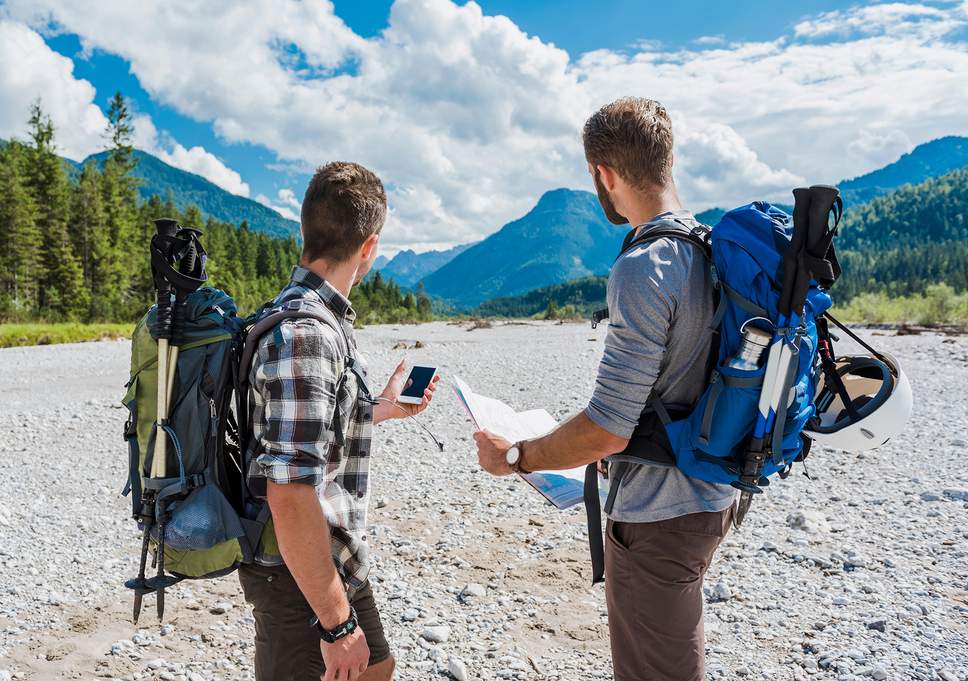
Travel used to need to be planned, down to the minute, ahead of time. Hotel rooms needed to be booked, dinner reservations made, flight tickets booked and museum tickets bought–all before you hit the road. In 2018 because of the explosion of travel technology this is not the case. You can be impulsive in your travel plans and not worry about a travel itinerary. Here are several reasons why this is the case, and each one is inextricably linked to the rise of travel technology.
Accommodation apps. Airbnb has lessened our reliance upon hotels and allowed us to stay with what seem like friends and family instead. Gone are the days of cold-calling hotels and getting bombarded with an array of room options. You can customize what you want to book according to the size of your travel party and the location of your sight-seeing or airport. There is no more need to think so far in advance. Airbnb allows you to book a room the day of, with free cancellation 48 hours before check in. This allows more travelers more flexibility and especially with millenials this is preferred. Airbnb specifically has yet to go public, and so as it mulls over the idea of a public offering it also needs to think over the future of this app. It has already changed traveling in major ways. What could the future hold for this type of travel technology? Especially if it is bought up by travel tech giants such as Expedia and Priceline. HotelTonight is also a major travel technology contributor, allowing travelers to find hotels the day-of their travel date. The need for planning has lessened and the allowance for greater -on-a-whim travel has risen.
Ride-sharing apps such as Uber and Lyft. Travelers are no longer at the mercy of expensive taxi cab companies to cart them from museum to museum, airport to accommodation. Uber and Lyft also provide greater flexibility for travelers.The apps allow instantaneous booking and immediate pick-up with different standard, enterprise and economy packages. Travelers can know their fare before they get into this taxi service. This allows for both more flexibility and more budget-friendly transportation when traveling.
Social Media. There’s no way one can ignore the massive impact of social media upon the field of travel technology. Twitter, Snapchat and especially Instagram provide real-time interaction between users to exchange ideas and opinions about locations, destinations and even travel deals. As of 2018 there are over 300 million posts tagged with the world travel. This has opened up an entire digital world of wanderlust to millenials and the other major demographics who utilize this platform. Basically, it has averaged out to be about 100,000 tagged posts for instagram users every day for the last eight years. Crazy, right? There are social media users who are raking in a considerable income due to their wanderlust and ability to document it for other users. Individuals can brand themselves as travel enthusiasts and market their wanderlust to others. This technology has changed the way many travel companies are tackling their marketing scheme. Companies now monitor this social media activity as well as the global trends to make sure customers are pleased with their experiences. Social media is proof that consumers prefer reality to a stock photo image of travel destinations. The rise in video-based mobile apps connected to these platforms, including the option of live-streaming has directly affected how people desire a more intimate marketing experience from the beginning.
Travel Sharing apps. Live2Leave is an app which allows travelers to share which spots, restaurants, hiking trails, museums–you name it–they enjoyed the most. This allows travelers to plan itineraries according to proven positive experiences by people they know and love. These travel-sharing apps connect people from all around the world into a shared travel experience. Google has taken this idea and rolled it out with Google Reviews and Google Tour Guides. Google users share experiences and upload photos of destinations to Google Maps.
Luggage-tracking. One of the top anxieties for travelers is lost luggage. Apps such as Samsara Luggage provide travelers with easy software to track their luggage across continents. The lessening of these anxieties are making more people more apt to travel and less inclined to stay at home.
There is no end to the list of effects of the rise of travel technology. Companies such as Esta sit at the cutting-edge of global travel trends, offering even digital and accessible visa services. In the age of technology travelers want instant-gratification. And with the rise of travel technology they are getting it. The only question is what genius travel technology will arise next that we will realize we could never have done without. Life is unimaginable to most without Uber and Airbnb. There are more apps right around the corner, just waiting to be developed.
